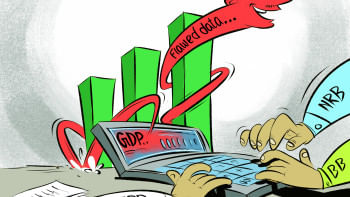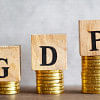We need better data governance

Data discrepancies among different government departments continue to be a significant concern, with the most recent mismatch arising in revenue collection and expenditure figures. According to a report in this daily, data from the finance ministry showed that Tk 277,925 crore was collected during the July-April period of FY23-24, while the National Board of Revenue (NBR) reported collecting Tk 289,376 crore, resulting in a discrepancy of Tk 11,451 crore. Similarly, regarding expenditure under the Annual Development Programme (ADP), the Implementation Monitoring and Evaluation Division (IMED) estimated that ministries and divisions had spent Tk 125,315 crore during July-April of FY23-24. However, the finance ministry's data shows an expenditure of Tk 92,126 crore, which is Tk 33,189 crore lower than the IMED's figure.
Last year, a similar discrepancy was observed between the tax collection figures published by the finance ministry and the NBR—a Tk 4,031 crore difference for July-April of FY22-23. Additionally, the ADP spending data showed a gap of Tk 41,136 crore between IMED and finance ministry figures. Apparently, the ministry calculates tax receipts based on reports from the Office of the Controller General of Accounts (CGA), while the tax administration accounts for revenue collection by including outstanding dues. This, officials say, is a major reason for the gap. But why are different departments using different methods of calculation? Why haven't they developed a uniform system of data evaluation that would ensure accuracy?
Recently, Bangladesh Bank also discovered that exports during July-April of FY23-24 were nearly $14 billion less than the shipment value of goods previously reported by the Export Promotion Bureau. The sheer margin of difference shocked everyone. These discrepancies and others highlight the poor state of data governance in the country. As economists have noted, if the finance ministry does not receive accurate spending data, it hampers the process of debt planning. Similar issues arise with other data inaccuracies that we seem to encounter frequently.
Given the circumstances, government institutions need to place greater emphasis on proper data governance. A systemic change to streamline the process has become essential so that flawed data doesn't lead to flawed policies. Experts say data mismatches may occur for two reasons—deliberate manipulation or accounting errors. There is strong suspicion that previous governments often deliberately manipulated data to enhance their image. We, therefore, hope that the interim government will take comprehensive actions to improve data governance among all relevant public institutions.


 For all latest news, follow The Daily Star's Google News channel.
For all latest news, follow The Daily Star's Google News channel. 










Comments